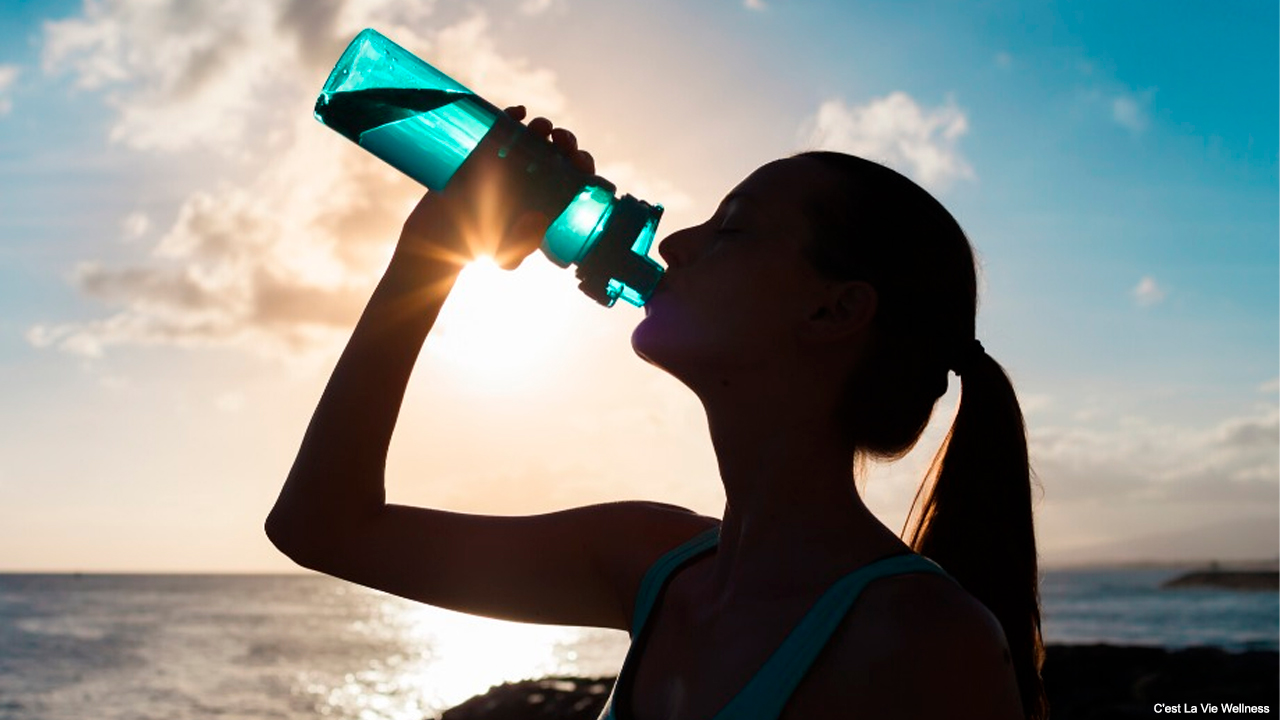The human body contains approximately 70% of water. The percentage of water varies with age, gender, body size, and composition. The water is distributed among various tissues and cells like eyes, kidneys, muscles, lungs, blood, brain, adipose tissues etc. ranging from 10% to 90%. Water is essential to perform various body metabolic activities like
- Regulation of body temperature
- Maintenance of blood volume
- Maintenance of acid-base balance
- Transportation of nutrients and oxygen to cells
- Functioning of cardiovascular and the digestive system
- Elimination of toxins
- Lubrication of skin and tissues and maintains the elasticity of tissues and muscles, cell shape and structure etc
- Boosting energy metabolism
- Hydration of brain cells and thereby maintaining better cognitive function
As the requirement for water varies with age and gender, here is the list of water requirements by people of different ages
- Adult man – 32-58ml/kg body weight
- Adult woman – 27-52ml/kg body weight
- Children – 60ml/kg body weight
- Adolescents boy – 47-60ml/kg body weight
- Adolescent girl – 39-49ml/kg body weight
- Pregnant woman – 2.1-3.2litres/day
An adult healthy person needs to drink 8-10 glasses of water daily. The fluid or the liquid that we take other than water should also be considered. The water is removed through the renal process, respiratory, and skin surfaces. The amount of water required is calculated on the basis of the amount of water lost and the amount that prevents the adverse effects of insufficient water. The requirement is based on environmental conditions and physical activity.
Overhydration – It occurs as a result of excess intake of fluid, decreased body’s ability to excrete water, and increased tendency to retain water by the body. This is normally seen in kidney disorders, liver diseases, congestive heart failure, and hormone imbalance. This decreases the sodium content of the body and leads to hyponatremia followed by muscle cramps and weakness.
Prevent dehydration by preventing
- Carbonated beverages
- Excess of tea and coffee
- Excess of concentrated and tetra-pack fruit juices
Fluids other than water that help keep you hydrated
- Soups
- Vegetable juice
- Lemon juice
- Coconut water
- Lassi
- Buttermilk
The right way of drinking water and its benefits
- Start your day with a glass of lukewarm water
- Drinking lukewarm water throughout your day (post-meal or half an hour pre-meal) aids in better digestion.
- The right amount of water intake keeps blood pressure normal.
- Staying well-hydrated will help you avoid binge eating or overeating.
- Drink plenty of fluids and take other beverages in moderation.
- Try boiling water before drinking to keep it free from bacteria and viruses.

 We all know that Jal is Jivan. In spite of hearing this much about water, are we taking up sufficient? The answer is No. It’s not always about dehydration, even overhydration also has its consequences. Too much of anything is bad for our health and the same applies to water also. Let’s get an idea of how much amount of water we all need to take depending on our body weight.
We all know that Jal is Jivan. In spite of hearing this much about water, are we taking up sufficient? The answer is No. It’s not always about dehydration, even overhydration also has its consequences. Too much of anything is bad for our health and the same applies to water also. Let’s get an idea of how much amount of water we all need to take depending on our body weight.









.jpeg)



.jpg)




.jpg)





.jpeg)

.jpg)


